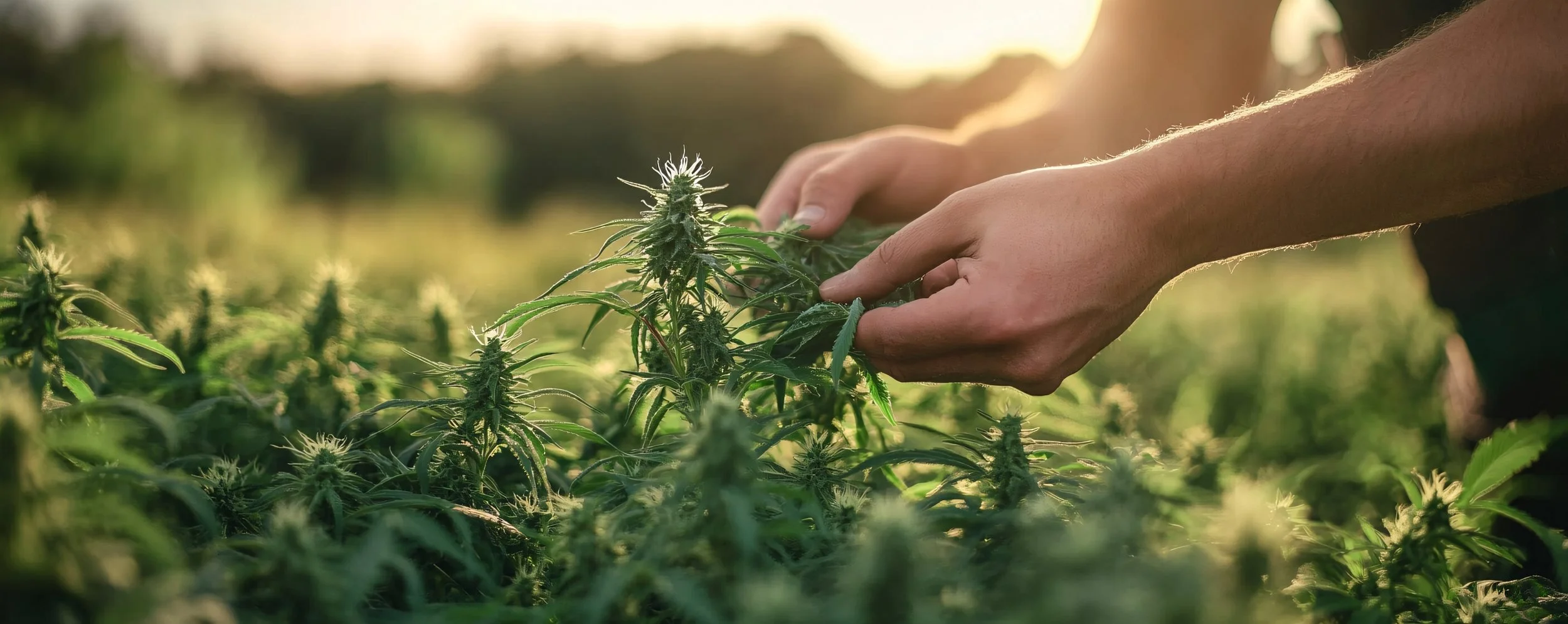Addressing the loophole. Protecting public health.
How Synthetic THC masquerades as hemp
The 2018 Farm Bill legalized industrial hemp with the intent of creating a new American agricultural industry. Under this Bill, American farmers invested heavily in hemp cultivation expecting a new cash crop, but the industrial market soon crashed due to supply chain issues and uncertainty in federal regulation. This crash became a target for those looking to exploit the hemp definition — giving rise to both synthetic THC and THCa flower.
When Congress created a federal definition for industrial hemp — cannabis containing less than 0.3% delta-9 THC by dry weight — it failed to anticipate the ways it would be exploited. Limiting delta-9 THC, rather than total THC, along with reference to derivatives which include synthetic conversions, created what came to be known as the “Farm Bill Loophole”— a minor bit of language that unintentionally created a world of challenges for public safety officials and lawmakers.
As demand for "hemp" intoxicants increased, foreign companies took notice. Before long, foreign manufacturers were shipping industrial quantities of CBD isolate to the US to be used as precursors and synthetically converted into compounds like delta-8 THC, delta-10 THC, and THCP.
Taking advantage of struggling farms, opportunists began exploiting the narrow definition of THC in the Farm Bill and marketing products with labels reading "THCa Hemp Flower," "Craft Hemp," or "Farm Bill Compliant" to suggest legality and sidestep laws related to marijuana. These high-THCa products insisted on their legality based on the Farm Bill’s measure of delta-9 THC, even though THCa converts to delta-9 when heated, smoked, or vaped.
These products — both synthetic THC and THCa flower — quickly spread throughout the country, from gas stations and bodegas to smoke shops, with little concern for public safety, consumer protection, and state level regulatory programs.
Today, Congress is working to close the loophole and clarify their original intent — to support American farmers, not legalize synthetic THC products.
ABOUT
We Stand For
public health and safety
Synthetic THC, chemically converted from hemp-derived CBD, is often mislabeled, untested and can be more potent than state regulated cannabis.
These products use harsh chemical processes in laboratory conversions that can create harmful byproducts. These byproducts contribute to adverse events and emergency room visits, undermining the future of hemp. Clarifying federal law and providing proper oversight are essential to ensure product safety and public health. Adding to the confusion, consumers sometimes do not know that hemp products can be intoxicating.
These products frequently lack age verification requirements, proper dosing information, or warnings about psychoactive effects, and sometimes contain misleading health claims, creating serious risks for consumers.
Plant parity
Separate regulatory pathways are essential to unlocking hemp's economic potential and resolving the “Farm Bill Loophole”. Congress must establish clear definitions and regulatory lanes for industrial hemp for fiber and grain as a traditional agricultural commodity; a clear pathway for non-intoxicating hemp cannabinoids, such as CBD, under food and dietary supplement regulations; and a unified framework for intoxicating THC products.
By establishing a framework that focuses on end products, instead of source materials, we can achieve parity between marijuana and hemp, recognizing that they are scientifically and botanically the same plant — Cannabis sativa L.
Without Congressional action, the proliferation of synthetic THC products and THCa flower marketed as "hemp," will continue to undermine legitimate non-intoxicating hemp producers, state marijuana programs, and public safety.
Frequently Asked Questions
FAQs
WHAT IS THCa FLOWER?
THCa flower is the smokable, mature flower bud of a cannabis plant that's often marketed as "hemp" even though it is identical to marijuana. Most of these products exploit a legal loophole: while THCa (the primary cannabinoid in marijuana) isn't intoxicating in its raw form, it converts to delta-9 THC when heated.
WHAT IS SYNTHETIC THC?
Synthetic THC is produced by chemically converting hemp-derived CBD.
This process uses harsh chemical laboratory conversions and can create harmful byproducts. These byproducts contribute to adverse events and emergency room visits, undermining the future of hemp and the industry at large.
WHAT ARE HEMP INTOXICANTS?
Hemp intoxicant is a misnomer, since hemp is not supposed to be intoxicating. However intoxicating products can be derived from hemp, and are often sold as a substitute for marijuana. These intoxicants fall into two distinct categories: synthetic THC and THCa flower.
WHAT IS THE "FARM BILL LOOPHOLE"?
The “Farm Bill Loophole” refers to the regulatory gaps created by the definition of industrial hemp in the Agriculture Improvement Act of 2018 ( the 2018 Farm Bill) that some claim permit synthetic THC and THCa flower to enter commerce outside intended agricultural channels.
HOW WOULD CBD PRODUCTS BE IMPACTED?
Natural, non-intoxicating CBD products would be expressly protected and legally delineated from other industrial and intoxicating products.
WHAT IS THE "FUTURE OF HEMP"?
Future of Hemp is a campaign of ATACH, to facilitate policy solutions and secure the future of hemp. Learn more at atach.org.
questions?
Ready to join the effort?
CONTACT

